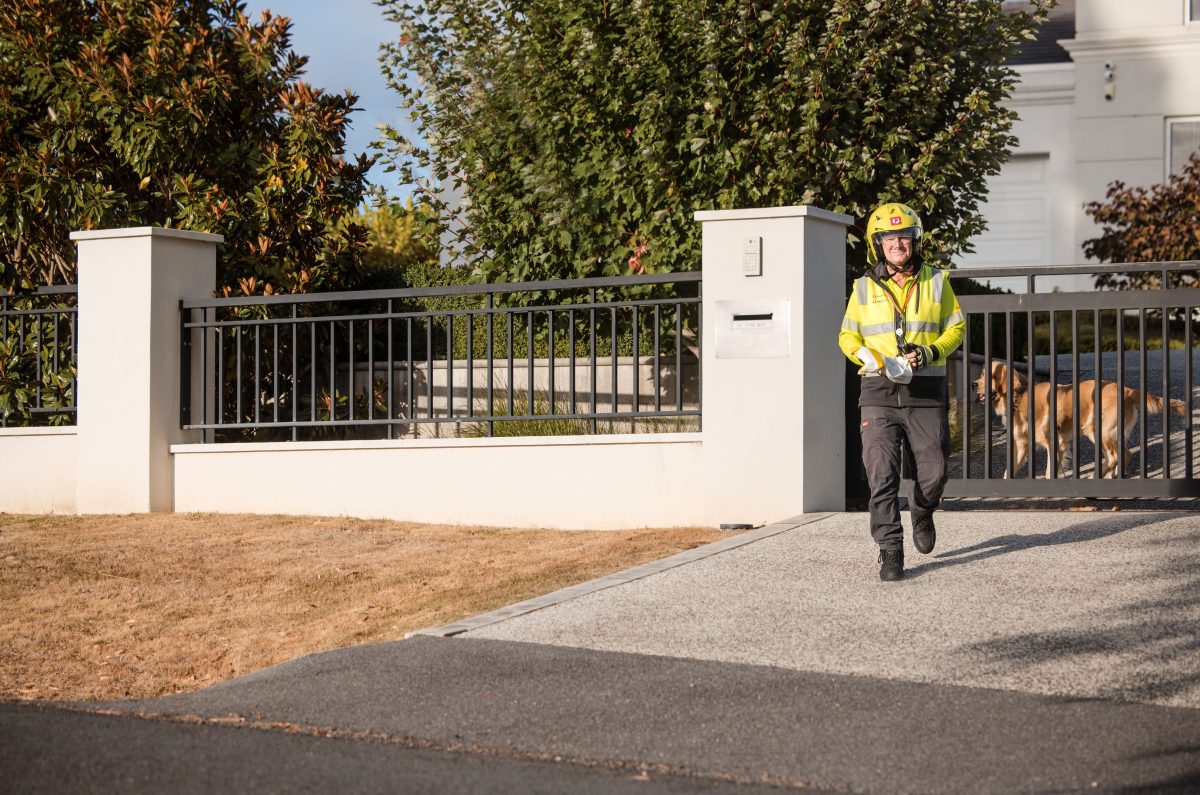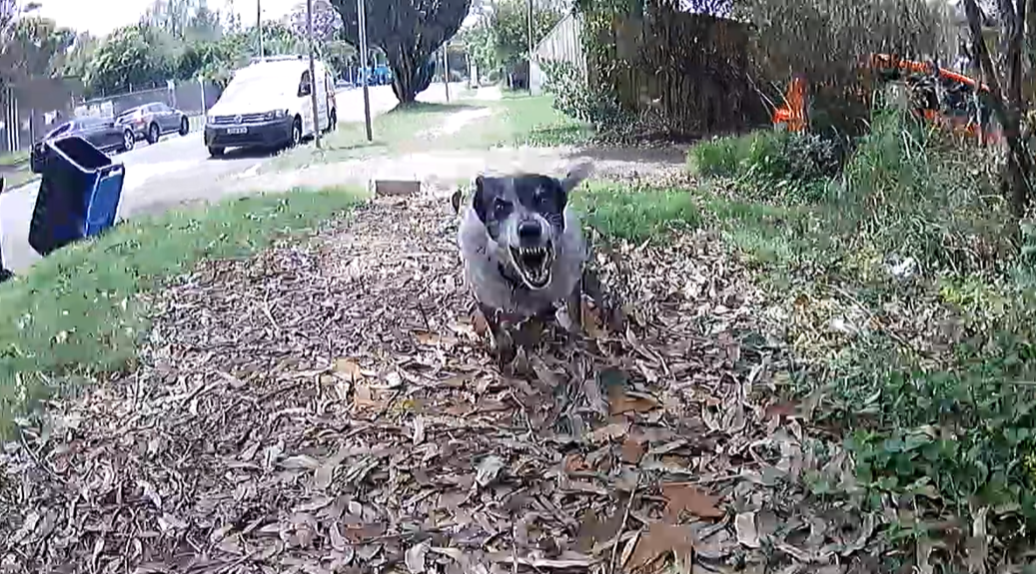
Posties will now carry a citronella spray to deter dog attacks after Australia Post’s appeals were rejected. Photos: Australia Post.
A year after appealing to dog owners to restrain their mutts when the mail is being delivered, Australia Post is arming their posties with citronella spray to ward off attacks.
The decision follows an alarming number of dog-related incidents in the past six months, with more than 44 posties a week falling victim to a threatening dog, an average of nine a day.
Despite repeated appeals, new Australia Post data reveals over 1150 dog-related incidents have occurred in the past six months, highlighting the growing concern for the physical and psychological well-being of posties.
In the ACT, 17 incidents were reported. The worst locations were Canberra South, Mitchell and Tuggeranong.
Canberra postie Will Riley told Region last year, when Australia Post first released dog attack data, that he had been bitten by a dog five times. The incidents occurred mainly around the suburbs of Cook and Aranda.
“Of those five, only one has ever broken skin, luckily,” he said.
“They’ve normally got me on my boots or pants, and only one sort of grazed my hand with its teeth through my glove.”
Plenty of other posties have been less fortunate.
The combination of the bike’s sound, the helmet, and high-vis uniform spells panic for dogs, which then act out their fight or flight instinct to protect their owner.

What posties are regularly facing when trying to deliver the mail and parcels.
Australia Post says it has a responsibility to protect its staff, saying the non-harmful, water-based citronella spray has been introduced as a last line of defence.
Successfully used overseas, the spray was trialled in some of the most dangerous locations, with results showing it was 80 per cent effective in causing dogs to retreat.
It temporarily distracts the dog, giving the postie crucial moments to move to safety and call the owner for help.
Almost 40 per cent of dog incidents took place on a customer’s property, half of those when a front door was opened for a parcel delivery.
Incidents on the street accounted for 57 per cent of all cases, and 39 per cent of these involved roaming dogs. Half of all other cases on the street were unrestrained dogs escaping a property to attack a postie.
Australia Post General Manager Safety, Russell Munro, said that despite public awareness efforts and rigorous safety protocols, alarming rates of dog-related incidents persist.
Mr Munro said the best way to avoid an incident was to ensure the dog was safely secured behind a locked door or gate when the postie arrives.
He said the citronella spray had proven largely effective in de-escalating incidents.
“When our people continue to end up in hospital, we have a responsibility to act, and this is a last resort measure,” Mr Munro said.
Australia Post reports that, in addition to incidents ranging from physical and attempted attacks to chasing and harassment, there are currently 35,000 active dog-related hazards flagged in handheld devices carried by team members, a 20 per cent increase since November last year.
The citronella spray program will prioritise high-risk regions first, with all posties to be equipped with the spray by the end of July. Strict protocols will be in place for its use. The program will then be extended to Parcel Delivery Drivers, and all team members will be trained on how to use the spray safely and only as a last resort.
Australia Post will continue to analyse incident data and conduct regular reviews of risk management practices.
Posties can refuse to make a delivery if they feel it is unsafe and Australia Post will cease service to a customer’s home until it is safe.
Original Article published by Ian Bushnell on Region Canberra.










